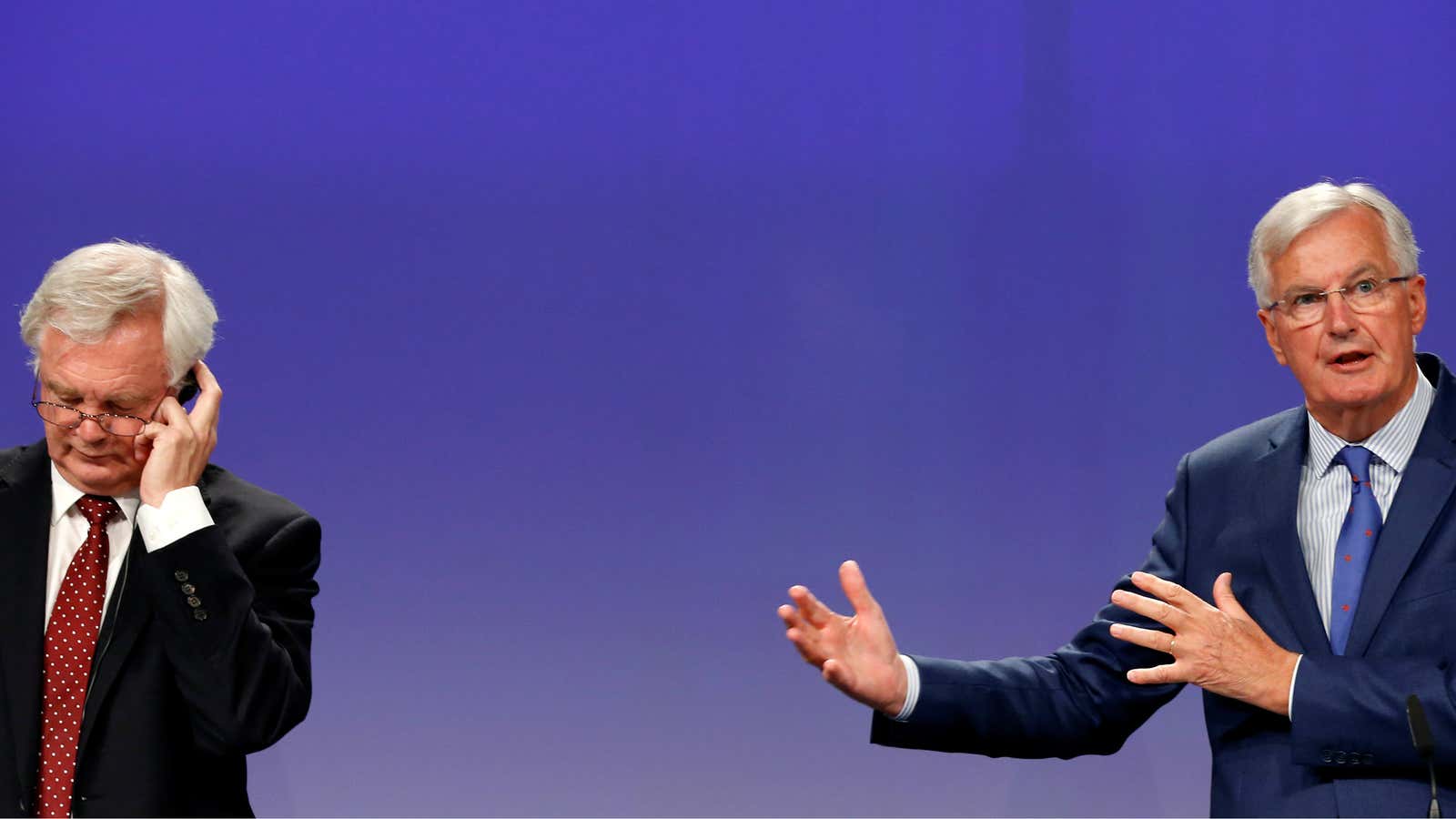Britain’s International Trade Secretary Liam Fox went on the offensive and claimed the UK “can’t be blackmailed into paying a price” to leave the European Union. And the EU is getting increasingly peeved with how Britain does not feel “legally obliged to honor its obligations,” as confirmed by EU negotiator Michel Barnier.
And that’s the point: Britain is not being blackmailed, the demands from the EU is exactly what the UK signed up for.
When Britain became a member of the 28 nation bloc, it agreed to a whole range of rules to adhere to. So, as the whole point of being part of a ‘union,’ it would operate as one entity. This includes trading under Single Market rules with unified tariffs on trade, as well as the ability for EU members to freely pass between member states. On top of that, it also signed up for contributing to huge infrastructure projects that have a long time frame for completion.
If Britain decides to leave the EU, which it did out of its own volition in June 2016 through a referendum, it must tie up all loose ends and still pay up for what it agreed to in the first place.
Professor Iain Begg, professorial research fellow at the European Institute, London School of Economics and Political Science, and a senior fellow of the independent research hub on UK-EU relations at The UK in a Changing Europe, summed up Britain’s dilemma succinctly earlier this year.
There is no finite number of what the EU is demanding, yet. However, European Commission president Jean-Claude Juncker previously suggested €60 billion ($71.3 billion) as a figure. Meanwhile Begg believes it could be around “the €30 billion mark.”
Either way, Britain has to pay billions of euros for leaving the EU. The reason for this is laid out by Begg:
- Huge infrastructure project funding is agreed years in advance of completion. “Typically, projects will receive a proportion of their money at the outset, but will—quite properly—only receive final payment when the project is completed,” says Begg. So therefore, Britain is not admonished from its payment obligations.
- Britain signed up to the EU’s budget framework. The EU budget, and it’s expenditure, is a “legal act” and is over a seven year span. The last one started in 2014 and it ends in 2020. So, when Britain leaves the EU on March, 2019, it will still be liable “to pay its share for the remaining seven quarters, that is from April 2019 until the end of 2020.”
- Longer term obligations like pensions need to be wrangled. There needs to be an amount set aside for paying the pensions of those who worked at EU institutions who retired when Britain was part of the EU.
Of course, Prime Minister Theresa May and her government are frustrated with the talks. But maybe it can concentrate on meeting its obligations and offsetting some of its bill.
The UK is already trying to get the EU to also hand over assets that it purchased during its membership, including cash and property (paywall). On top of that, since the EU spends around €7 billion a year in Britain, “deducting these payments would reduce the bill substantially.”
